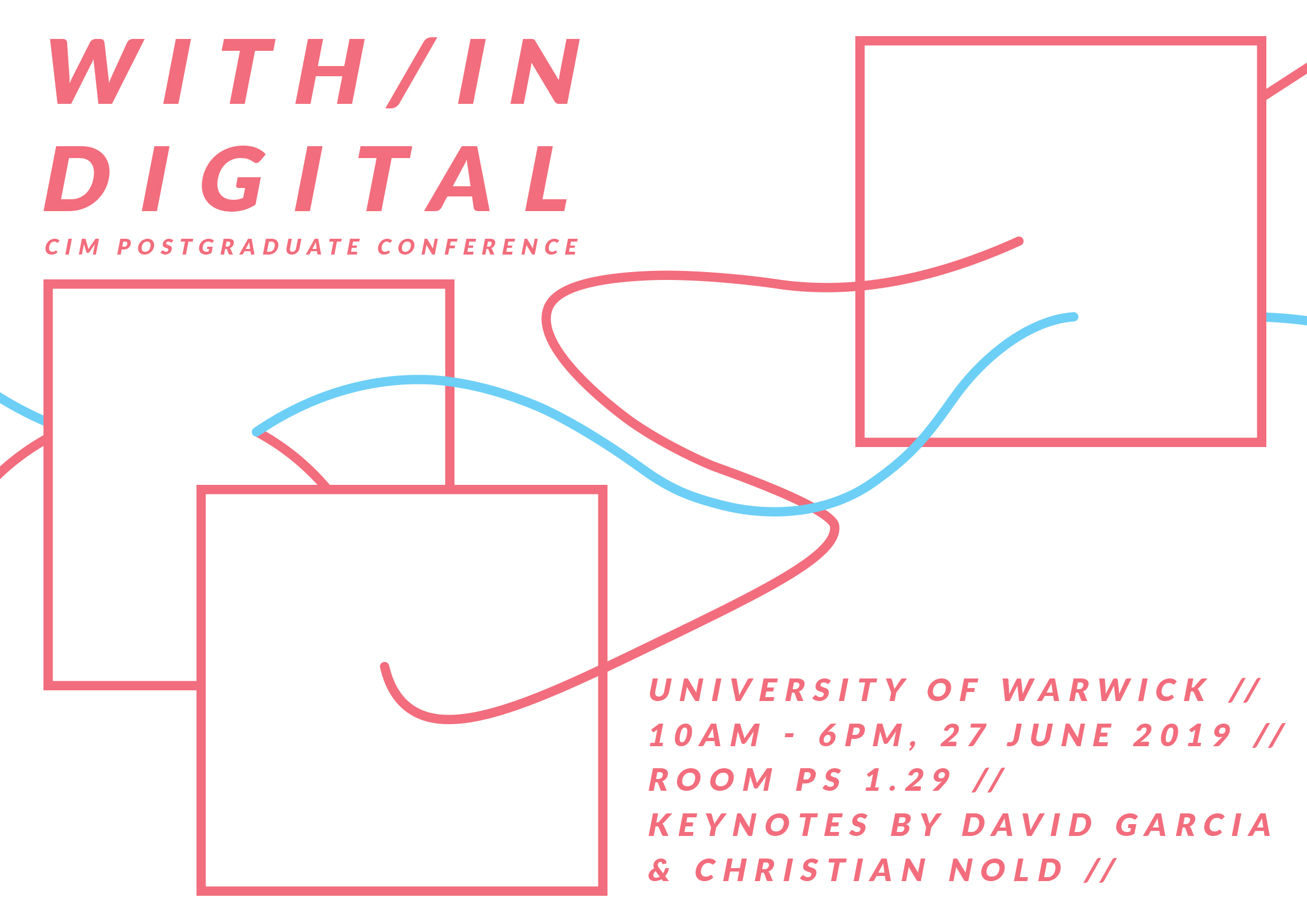
A blog post on the PGR conference last June by our very own Wenhao Bi.
https://warwick.ac.uk/fac/cross_fac/cim/people/wenhao-bi/
After roughly half a year of preparation, from setting the theme and calling for proposals to organizing panels and arranging logistics, our one-day postgraduate conference finally took place on 27th June, 2019 with two keynote talks and eleven presentations from masters and PhD students from CIM, LSE, University of Salford, University of Pittsburgh and Delhi School of Economics. On the day, the panels were structured around four main topics – participation, political economies, politics and aesthetics – and covered a range of specific issues, from tech literacy, crime-scene reconstruction, food delivery platforms, hackathons and tagging. Despite the conference being over, I see the discussions – not only at the conference, but also for the conference – as ongoing and long-lasting since the digital environment we are dealing with has become thoroughly part of our everyday lives.

The decision on the theme of “with/in digital” stemmed from the different layers we experience the digital: We equip ourselves with digital gadgets, get involved in ‘the digital sphere’, and form habits and datafied personas within digital structures. It is more than an everyday phenomenon to be observed; it includes actions and reactions to be practised, and subjects and areas to be researched. It can involve methods and approaches we follow, but which are questioned and challenged at the same time. It is an acquaintance, if not an intimate, but at times dangerous and problematic as well. With such shared concerns, the organizing committee called for proposals – not necessarily formal academic papers – as responses to or further questions on the meaning of being with/in digital, and the role both human and non-human actors play with/in digital.
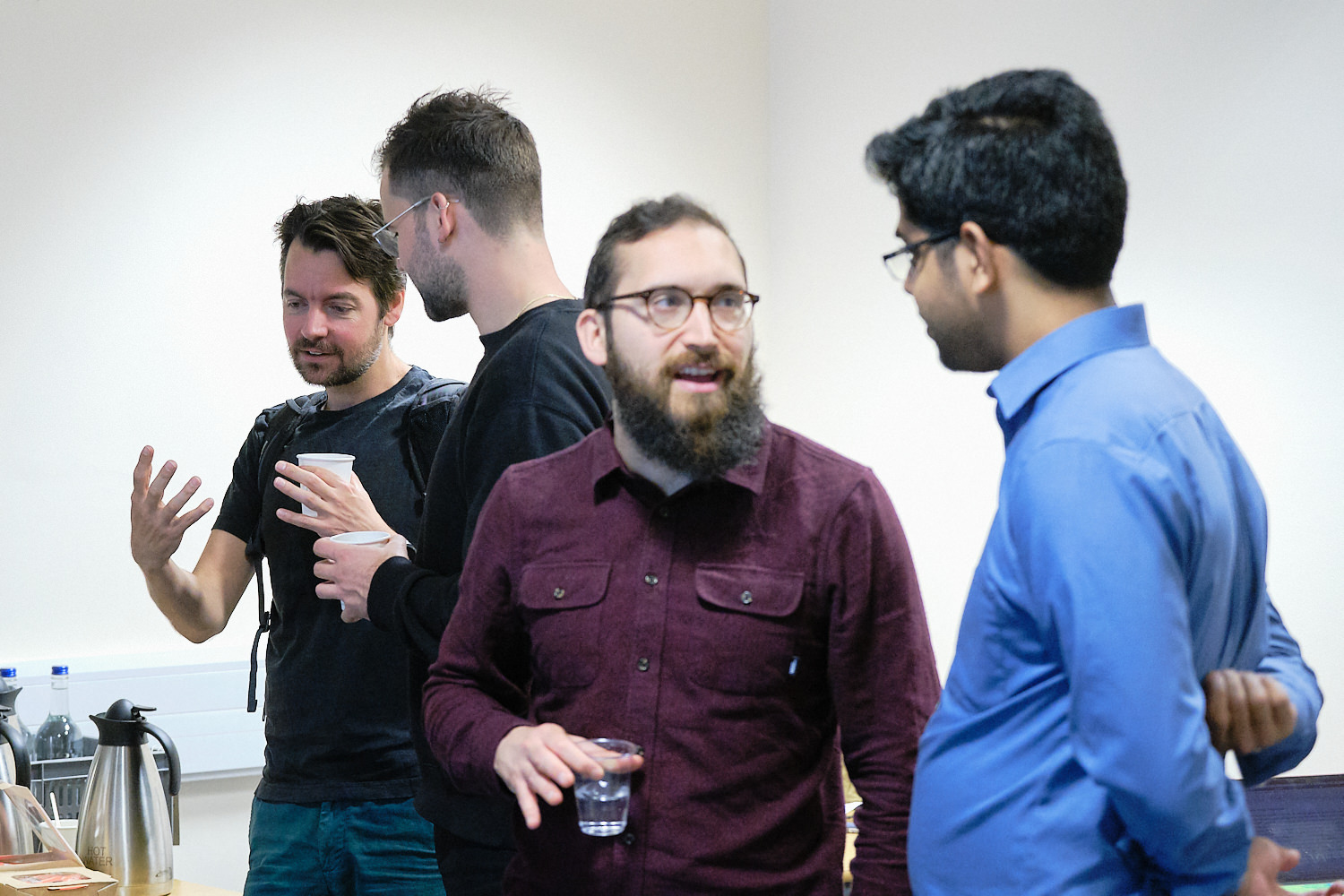
Many presentations at the conference some shared perspectives and approaches to the theme. Presentations on ‘Tech Literacy for Digital Natives’ by Sophie Fitzpatrick and ‘A Critical Discussion of Addiction in Digital Practices’ by Yang Qin, for instance, did not take the involvement and participation with/in digital for granted. Instead, they demonstrated an awareness of the ambiguity around narratives of user empowerment. As Christian Nold pointed out in his keynote talk with the example of RFID card, moreover, a focus on digital hardware and infrastructure should not be neglected when it comes to such critical questions.
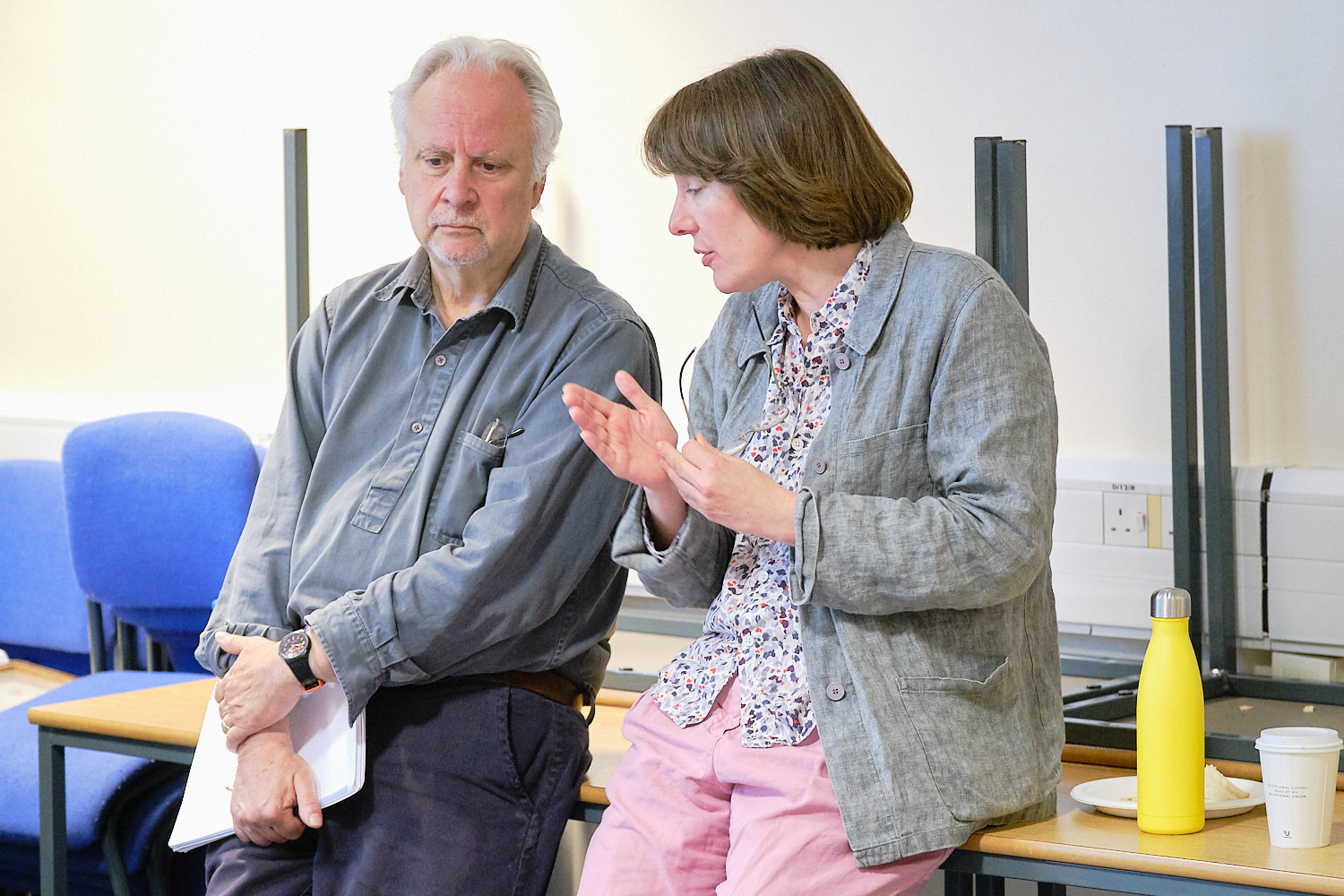
Some proposals explored alternative presentation formats, like ‘There’s Nobody Here: On Music (Playing from another Room)’ by Jack Wilson, who performed the experience of being with data through the concept of the ghost and a visual essay. Others led us through the methodological challenges faced in their research, opening up questions about accuracy and the translation between different forms of data, like ‘Youth Participation and Power Dynamics on Social Media’ by Jessica Ussher.
In the panel on political economies, the presentations ‘The In/Expert in Digital’ by Stacy Wood, ‘Give Data, Get Work: An Overview of Data Usage on Food Delivery Platform Workers’ by Mohammad Sajjad Hussain and ‘Unpacking the Black Box of Cyberpolitics: A Literature Approach on Political Reflection in Social Media’ by myself, discussed participation, populism, ludification, truth, efficiency, and how all those play different roles in diverse configurations of digital political economies.
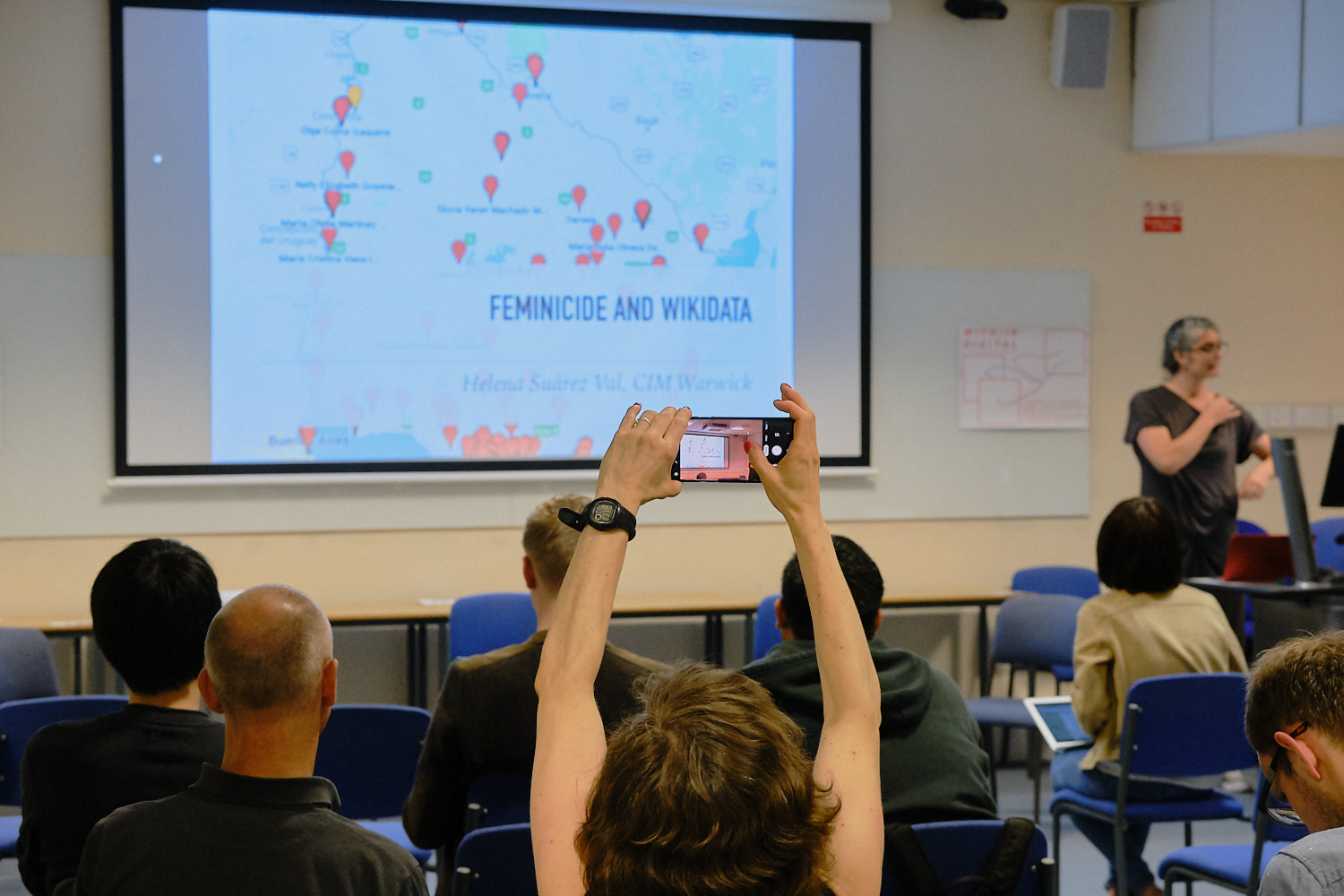
After lunch, the politics of data collection, and the design and mobilisation of digital platforms, were unpacked in detail in the paper ‘Where Digital Worlds Meet-Exploring Civic Hackathon Events and Data Through an Ontological Framework’ by Ville Aula alongside ‘Feminicide and Open Data’ by Helena Suárez Val in the politics panel.
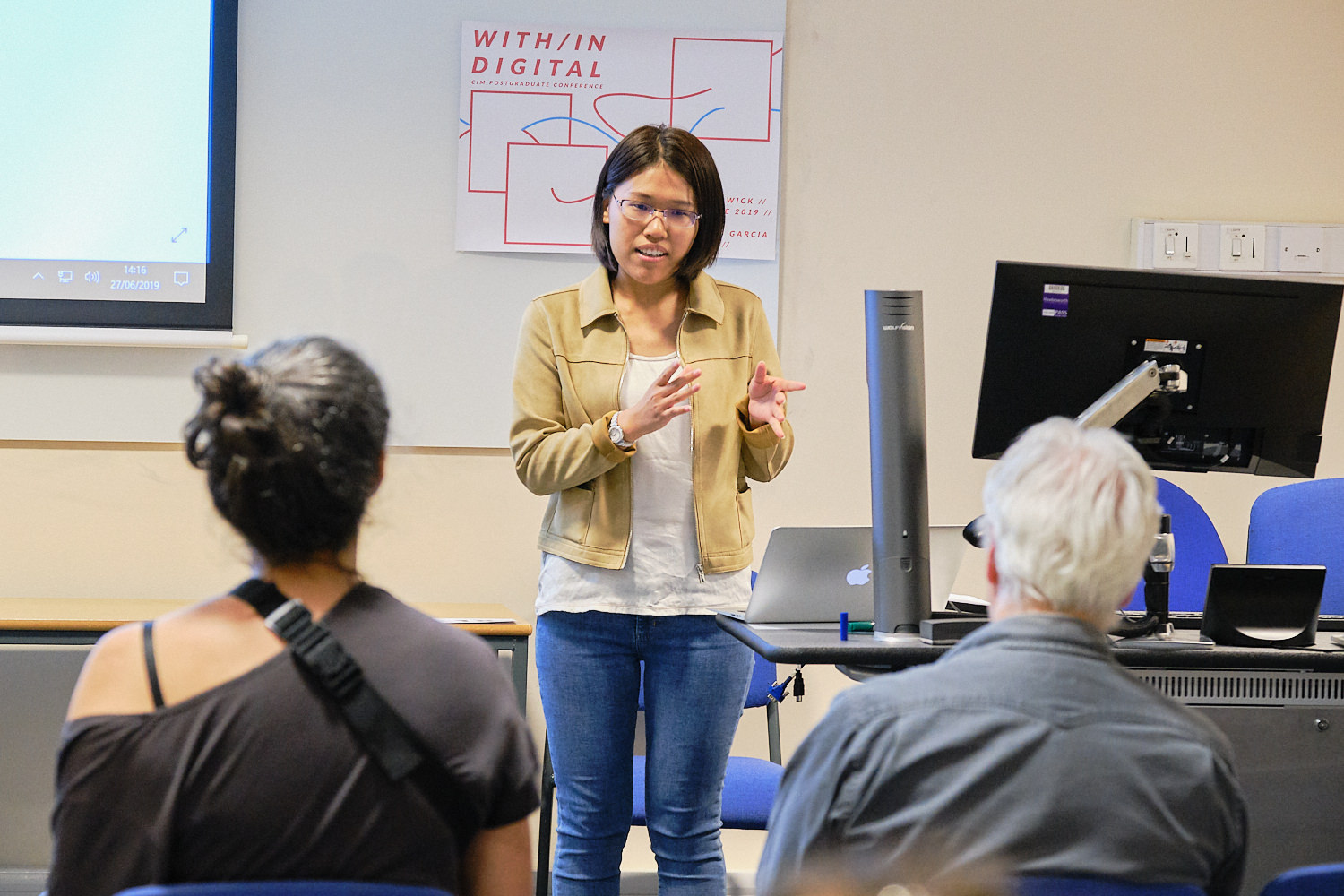
And lastly, after rich exchanges during the coffee break, issues around digital aesthetics were discussed in terms of processes of tagging and labelling as forms of identity construction through ‘A Cultural Critique of Tagging-Politics and Aesthetics of Categorisation in the Age of Social Media’ by Nicola Bozzi, and the effects of the capitalisation of aesthetic trends in social mobility in ‘Microcelebrity: Gaining the Fame and Wealth on Social Media’ by Bella Shi.
As a member of the organizing committee, I appreciate all participants for sharing their work and engaging with the themes of the conference. And in particular our keynote speakers, David Garcia and Christian Nold, for their generous comments throughout the day and their inspiring talks and closing panel.
Last but not least, a big thank you to those who yielded time and effort on our conference: Michael Dieter, Sarah Doughty, Gheerdhu Mohan Kumar, Tracy Thompson, James Tripp, Nerea Calvillo, Maria Puig de la Bellacasa, Noortje Marres and Nate Tkacz.
https://warwick.ac.uk/fac/cross_fac/cim/events/pgconference2019/